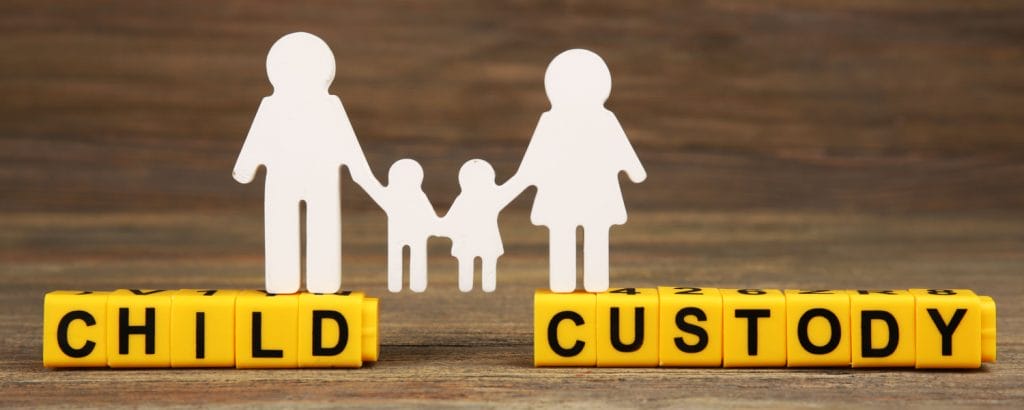As parents, one of your primary responsibilities is ensuring the well-being and upbringing of your children. Custody arrangements play a crucial role in this, especially during divorce or separation. However, clients often ask “what happens to custody when my child turns 18?” Do custody orders still apply, or does the legal landscape change entirely? In this article, we’ll explore the key considerations and answer common questions regarding custody when your child comes of age.

Age of Majority
In most jurisdictions, the age of majority, the age at which a person is legally considered an adult, is 18. When your child reaches this milestone, they gain certain legal rights and responsibilities. They can vote, enter into contracts, and make decisions about their own medical treatment without your consent. However, this legal independence doesn’t necessarily mean that custody arrangements automatically dissolve.
Some of these laws change depending on your jurisdiction. To learn more about jurisdiction check out “How to Change Jurisdiction for Child Custody in Illinois.”
Custody Orders and Agreements
Custody orders and agreements are typically established during divorce or separation proceedings, or through negotiations between the parents. These orders outline the specific terms and conditions regarding child custody, visitation, and support. While these orders are binding and enforceable, they usually remain in effect until modified or terminated by a court or through mutual agreement.
Some agreements can last even after a child has turned 18. If the child chooses to live with their custodial parent while finishing high school or college then the custody agreement can be extended. They will also be given a choice as to where they want to live now that they are an adult, so your child can choose to continue living with their custodial parent, move in with the other parent, or live on their own. To learn more, check out “Who Has Custody Of A Child If There Is No Court Order In Illinois?” or your local county courousthe’s website.

Child’s Wishes and Best Interests
As your child becomes an adult, their wishes and preferences may carry more weight in custody decisions. Courts often consider the child’s well-being and best interests when making determinations about custody. If your child is 18 or older and expresses a desire to change their living arrangement, courts may take their wishes into account. However, the court’s primary concern will always be the child’s welfare.
College and Financial Support
One significant aspect of custody that may change when your child turns 18 is financial support, particularly if your custody agreement includes provisions for supporting the child’s education. Some agreements specify that financial support for college or other educational expenses continues beyond the age of 18, often until the child graduates from college or reaches a certain age.
Not every state has rules specifically outlining this type of continued support, but it can be written into any child support agreement. Make sure to review your custody agreement or consult with a family law attorney in your state to understand your obligations under the law.
Modification of Custody Orders
If circumstances change significantly after your child turns 18, you or the other parent may seek a modification of the custody order. Changes could include relocation, changes in the child’s needs, or substantial changes in the parent’s circumstances like a significant change in income. A court may grant a modification if it’s in the child’s best interests.
All states have a law allowing emancipated minors to make their own decisions as well. If a minor can prove they have been living independently for 6 months and are over the age of 16 they can generally ask to be emancipated. Once this happens, the law recognizes that minor to be an adult and custody/support orders can be revoked. To learn more about motions in family court check out “How To File A Motion In Family Court.”

Emphasis on Communication
As your child matures, open and effective communication becomes even more crucial. Discuss any changes or concerns with your child and the other parent. If necessary, consider family mediation or counseling to facilitate productive conversations and ensure that everyone’s needs are met.
Make sure you understand your custody agreements and talk to your child about them. Talk to them about their future plans such as college or trade school. Just because your legal responsibilities have ended does not mean your relationship with your child ends. The courts make decisions with the best interests of the child in mind and you should too.
Conclusion: What Happens to Custody When My Child Turns 18?
Custody arrangements don’t automatically dissolve when your child turns 18, but the dynamics can change. As your child gains legal independence and their own voice in custody decisions, it’s essential to continue prioritizing their well-being. Review your custody order, communicate openly, and be prepared to address any necessary modifications to ensure that your child’s best interests are met as they transition into adulthood. Consulting with an experienced family law attorney, like those at KGN Law Firm, can provide valuable guidance during this process. Remember, the focus should always be on what’s best for your child.
MEET WITH AN ILLINOIS FAMILY LAW ATTORNEY TODAY
The Family Law attorneys at Koth Gregory & Nieminski understand that your family is the top priority, which is why we offer SAME-DAY APPOINTMENTS. If you need a divorce or other family law services, you can schedule your first meeting through our online appointment calendar. We look forward to meeting you.
Disclaimer: This article (What Happens to Custody When My Child Turns 18?) may contain information that is outdated as Illinois law continuously evolves. Meeting with an experienced family law attorney is the best way to ensure you are receiving the most current information to answer the question What Happens to Custody When My Child Turns 18?

Published by Dustin Koth on August 8, 2024
